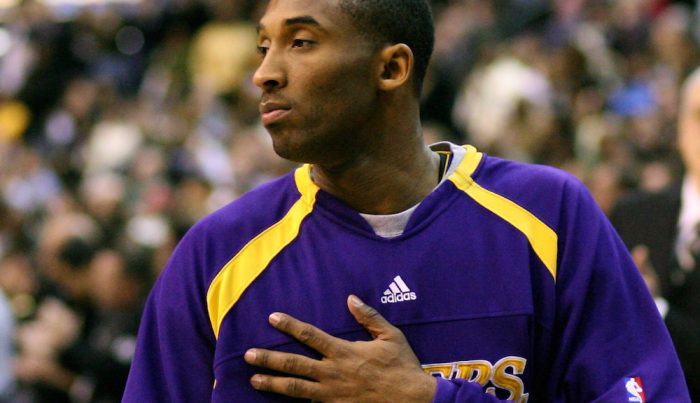*Editor’s Note: Elephant Journal articles represent the personal views of the authors, and cannot possibly reflect Elephant Journal as a whole. Disagree with an Op-Ed or opinion? We’re happy to share your experience here.
~
As I was waiting for my son to pack his hockey equipment this past weekend, I opened up social media and saw the headline, the start of a developing story engulfing North America.
The tragic death of Kobe Bryant, along with eight others, including his 13-year-old daughter, sparked an outpouring of grief and tributes for the basketball great—discussing his leadership, mentorship, kindness, dedication.
But others were quick to note that Bryant’s legacy is also marked by an allegation of sexual assault and the rape case of 2003.
Even though the media had all kinds of opinions about Kobe’s legacy, my mind instantly went to what some would describe as my own “complicated history.”
Why?
Because in 2009, I was accused of sexually assaulting someone I knew as well.
Sexual assault takes many forms, including attacks such as rape or attempted rape, as well as any unwanted sexual contact—physical or not—as well as threats such as sexual contact in exchange for a job or a promotion.
The best course of action if you’re guilty of sexually assaulting someone is to confess, apologize, promise never to do it again, and hope you don’t get fired.
But, what if you’re not guilty?
The feminist rubric is: believe the victim; don’t look for discrediting evidence; false allegations are extremely rare. That simply isn’t true. Not today and not historically. It is a sad commentary on our culture that few people care what happens to men falsely charged with sex crimes.
False accusations do happen.
In the wake of the #MeToo movement, many have been speaking publicly about sexual harassment, shining a light on unacceptable behavior from individuals who may in other circumstances be beloved members of their communities.
Being accused of sexual misconduct is extremely alienating. #MeToo is an expression of solidarity, but there is no solidarity for the accused. We don’t talk to one another. We assume that if someone has been accused, there must be a good reason. We’re afraid of guilt by association. We don’t want to be noticed, so we lower our voices and stick to an ever-dwindling circle of friends.
Many, as they process their emotions, find comfort in taking empowering steps toward preventing future sexual violence, like re-examining their own actions, being an active bystander, or teaching the individuals and children in their life the importance of respecting others.
Should there be a way forward for people accused of sexual misconduct?
What happens after allegations of sexual misconduct—especially allegations that don’t fall neatly into the purview of the justice system?
In addition to having been accused, I have also been sexually assaulted in my life.
Every person who’s gone through something has a right to be heard. I strongly believe that every person who is brave enough to come forward with an allegation of sexual assault should be heard, respected, and have their allegations taken seriously. But I am uniquely familiar with the far-reaching dangers of rushing to judgment. Allegations that have not been investigated should not be used to justify the destruction of a person’s career and reputation.
You want to believe, but you can’t believe everyone. If an investigation is the only way to be fair to everyone, then a legal investigation is the only way to be fair. We cannot have justice by Twitter.
We must use due process, because otherwise, we’re going to have situations where people will lose their livelihoods, whether it be the person who is making the accusation or the person who is being accused, because of something someone may or may not have done.
The truth is, all of us have wronged someone at some point. No one is truly innocent. Even if you’re not guilty of the particular crime of which you stand accused, you’re likely to be guilty of something. Either way, the trial is usually over before any defense can arrive.
The #MeToo surge against sexual abuse provides opportunities for pivotal societal change, but also comes with challenges.
All of the moments that have changed hearts and minds and moved a culture in the direction of justice have been rooted in storytelling as narrative, and they have been a powerful agent of change throughout history.
Today, journalism is playing a central role, both good and bad, in the public reckoning that has followed the #MeToo movement. The media has been the vehicle that has devolved investigations into rumors and shared reports of accusations or secret settlements, and first-person testimonials have been made public. But journalists have been also prominent among those accused.
The #MeToo movement has shown how sharing personal experiences can promote conversations leading to change.
And maybe Kobe’s death will encourage a further conversation:
Should a man accused of rape who was never convicted be able to move forward?
 Share on bsky
Share on bsky






Read 2 comments and reply